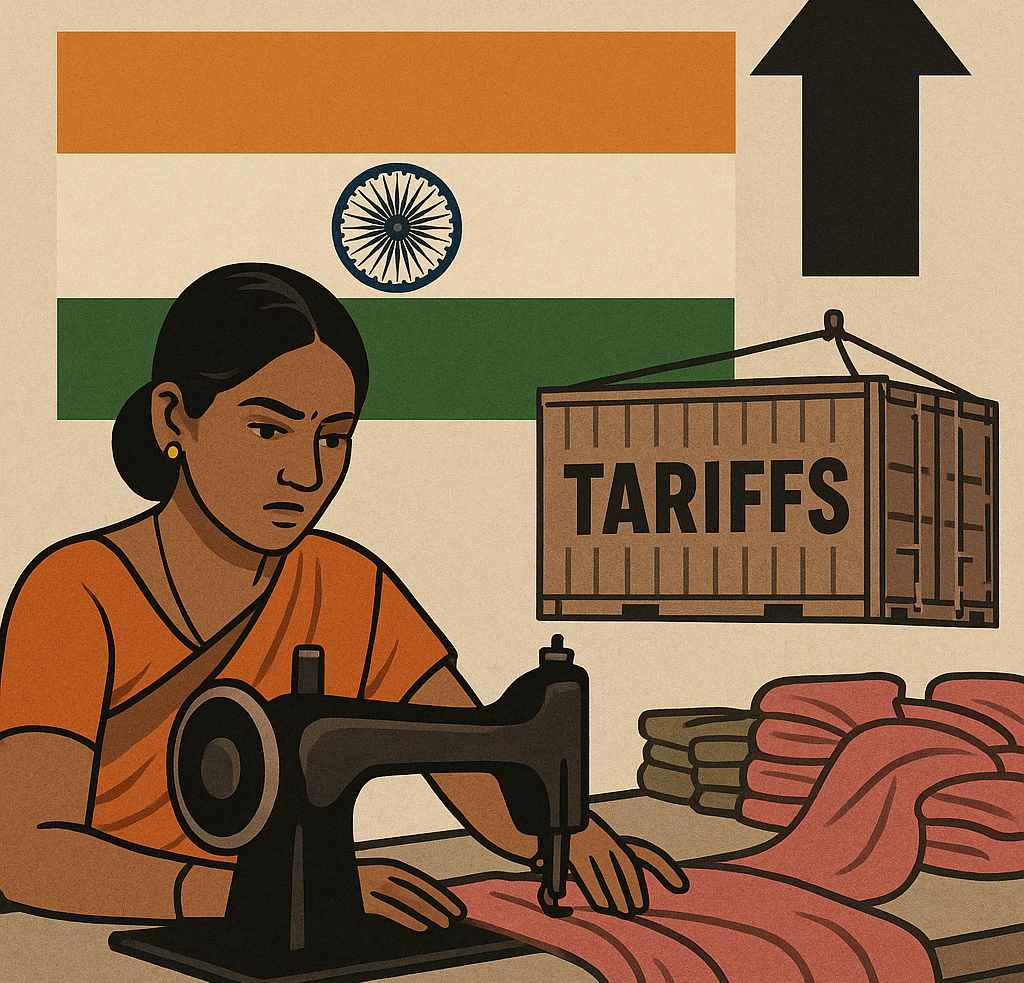🇮🇳 India’s Garment Exporters Face New Tariffs: What It Means for Bespoke Suit Makers
Indian apparel exporters are under pressure following the United States’ recent decision to impose a 25% tariff on Indian garments, textiles, and jewelry starting August 1, 2025. This move, announced by President Trump, raises significant challenges for the textile sector and threatens India’s competitiveness in key categories, including bespoke suits, where precision, customization, and quality are the foundation of global demand.
🧵 Bespoke Suit Makers Like Dharzi Group in Focus
Premium suit manufacturers like Dharzi Group — known for their bespoke suit craftsmanship — are navigating rising raw material costs, price-sensitive overseas buyers, and tighter margins. With the U.S. being a top market for luxury tailored apparel, these tariffs could impact not just high-volume exporters but also niche labels serving exclusive clientele.
Dharzi Group continues to innovate in design, fit, and fabric choices, offering made-to-measure garments that appeal to professionals and fashion-conscious consumers. As global pricing pressure increases, their focus on value-added services and luxury branding is more important than ever.
📉 Impact Across the Industry
According to Reuters, major exporters like Welspun, Gokaldas Exports, and Trident derive 40–70% of their revenue from the U.S. market. With new tariffs in place, these players are anticipating:
- Order slowdowns
- Margin reductions
- Postponed expansion plans
Even established segments like cotton woven apparel and custom suits are at risk due to competitive pricing from nations like Vietnam and Bangladesh, who face tariffs as high as 54%.
🌍 New Market Diversification Strategies
To reduce U.S. dependency, Indian manufacturers are shifting focus to markets in the UK, EU, Japan, and the Middle East. This strategic pivot is expected to help bespoke brands maintain global visibility.
According to Business Standard, exporters are also betting on bilateral trade negotiations to provide some relief. However, until a resolution is reached, adaptability remains key.
🧭 How Dharzi Group Is Responding
Dharzi Group is committed to staying ahead by:
- Streamlining production for agility
- Exploring e-commerce opportunities to reach overseas clients directly
- Offering more sustainable, high-quality bespoke suits
- Investing in digital customization tools to enhance the online tailoring experience
Their focus aligns with global consumer preferences shifting toward personalization, ethical sourcing, and timeless fashion — core pillars of bespoke tailoring.
📌 Key Takeaways
| Strategic Area | Implications for Bespoke Suit Exporters |
|---|---|
| Tariff Hikes | Higher costs and shrinking margins in U.S. sales |
| Market Diversification | Focus on EU, UK, UAE to balance lost U.S. business |
| Brand Differentiation | Bespoke suit makers like Dharzi Group leverage quality and custom fit |
| Digital Evolution | E-commerce and virtual tailoring to reach global clients |



Sorry, the comment form is closed at this time.